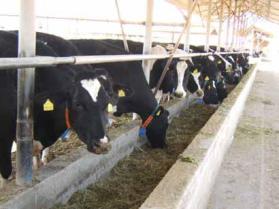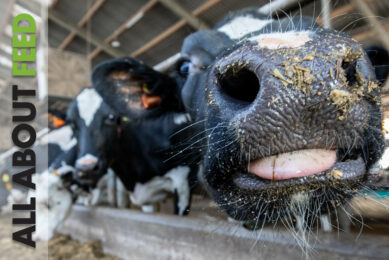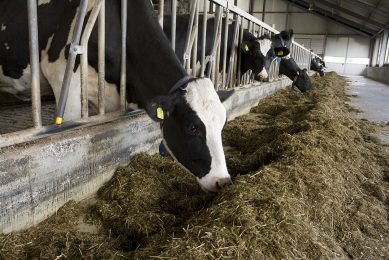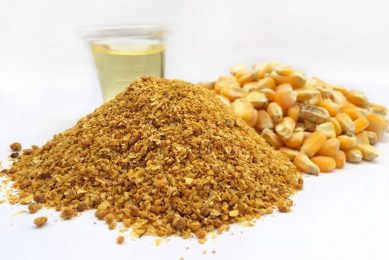USGC Jordan DDGS feeding trial commences

The US Grains Council last week, in partnership with the Hammoudeh Dairy Farm in Amman, Jordan, began the longawaited DDGS feeding trial utilizing Hammoudeh Farm’s dairy sector.
“With tests just underway, the Hammoudeh group is already pursuing the cost of importing one or two holds of DDGS, or 5,000-10,000 metric tonnes, along with corn and other US commodities via bulk vessel shipment into Aqaba,” said Joe O’Brien, USGC regional director in the Middle East and Subcontinent.
“While no DDGS has been imported thus far, the Council estimates Jordan’s domestic use could quickly surpass the 26,000 ton-per year level,” O’Brien said.
The Hammoudeh Dairy Farm has approximately 3,500 Holstein cows with eight groups of 192 cows being milked three times per day.
The feeding trial is based on a treatment group of 192 cows fed a 10% DDGS ration. The results will be measured against a control group and data collected on a daily basis.
Cost savings
The anticipated outcome is that milk production will stay the same or perhaps increase slightly. Considerable cost savings are also anticipated, as the DDGS will more than offset the use of other, more costly ingredients.
The Council anticipates this trail will have significant regional impact as current Middle Eastern US DDGS users, Turkey and Israel, imported 520,000 tonnes in 2009 and 660,000 tonnes in 2008.
Poultry trials
In addition to the feeding trial, Hammoudeh is also planning to test DDGS at their poultry facility, and the Council will closely monitoring results.
The University of Jordan, Department of Animal Production and Protection, also plans to conduct similar test runs at its experimental poultry farm facility.












